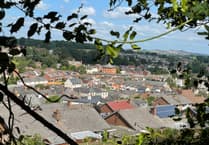MID DEVON District councillors could soon be able to vote at meetings they are attending remotely.
Right now, they must be physically present at a meeting to be able to vote, but the council is pushing for councillors who join by video conference to be able to formally express their views.
The scrutiny committee passed a motion this week supporting online voting, and the matter will now go to full council.
A report for councillors says a change in rules may “improve the potential for parents or carers to attend, as well as those with mobility problems and those at the greatest distances, particularly in the evening.”
A survey for the report took place to better understand the issues councillors face in fulfilling their responsibilities. Issues such as the time council work takes, meeting times, and journey times to meetings were raised.
Councillor Gordon Czapiewski (Liberal Democrat, Tiverton Lowman), who worked on the report, said he had spoken with the LGA and the Rural Services Network (RSN), an independent organisation that represents private and public organisations, about online participation. He said the LGA had put its campaign on the issue on hold.
Councillor Gill Westcott (Green Party, Canonsleigh), who also helped with the report, said 75 per cent of councillors had responded to the survey, and the results showed that “we are doing something right”.
“The early evening slot for meetings is the least impossible for councillors, although we probably do need to review the spread of meeting times and the impact on officers,” she said.
“We also highlight the importance for access and full participation by all sections of the community and for people attending online to vote.”
Cllr Westcott said the survey showed councillors felt the authority should warn people considering standing for election about the “unpredictable demands” of the workload, although only one respondent said they wouldn’t stand again based on the experience.
If full council passes the motion, then the council will send it to central government to lobby for the change.
By Bradley Gerrard



-and-Gareth-Smith-Headmaster-of-Okehampton-Colle.jpeg?width=209&height=140&crop=209:145,smart&quality=75)

Comments
This article has no comments yet. Be the first to leave a comment.